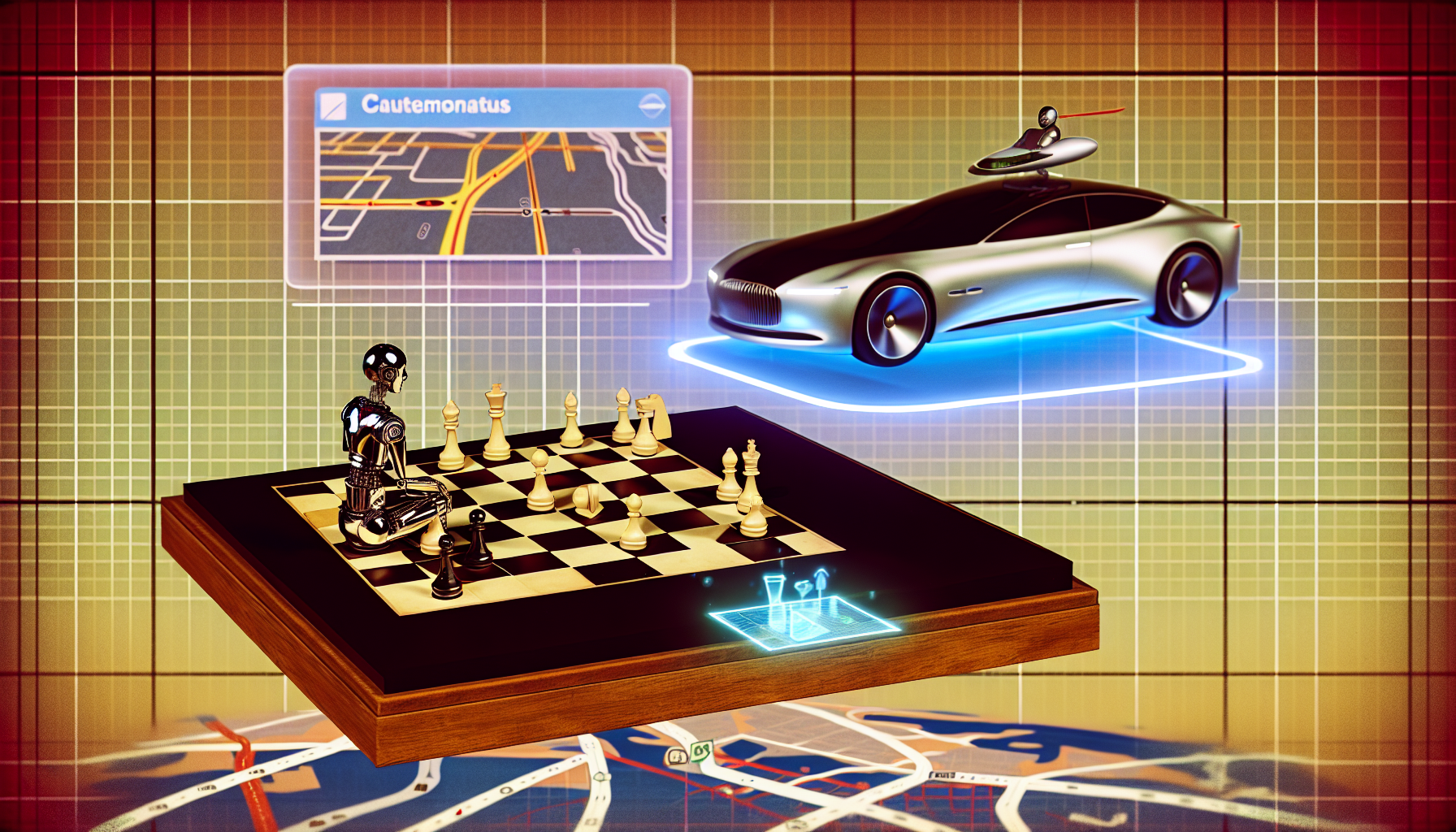In a world where smartphones now outsmart the average human in chess, self-driving cars navigate traffic, and digital assistants schedule our appointments, we find ourselves on the verge of a peculiar revolution. This is the dawn of machine decision-making, an era where autonomy isn’t just a feature but an emerging characteristic of the things we build. It’s a brave new world—a world that leaves philosophers scratching their heads and muttering into their beards.
Understanding Autonomy: Decisions on Auto-Pilot
When we talk about autonomy in AI, we’re diving deep into what it means for a machine to make decisions without constant human oversight. At its most basic, autonomy refers to the ability to make choices independently. It’s like letting your teenager borrow the car keys, trusting they won’t end up in a paint-swapping contest with a lamppost. However, AI doesn’t ask for car keys—it asks for datasets and algorithms.
The autonomy of AI is built on complex algorithms that allow machines to learn from data, recognize patterns, and make decisions based on that information. Imagine teaching a dog to fetch and return a stick. Now, scale that learning up to millions of sticks, and the dog is born with a computing brain that never tires and doesn’t care for treats. That’s AI, more or less.
The Philosophical Quandary: Who Decides When Machines Decide?
But here’s where things get philosophical. When machines make decisions, who is truly responsible for those decisions: the machine, the programmer, or the entity using the machine? It’s a question that has sparked debates not just in academic circles but also in legal and ethical arenas.
The concept of agency is central here. Traditionally, agency belongs to humans who make conscious choices based on beliefs, desires, and a basic sense of right and wrong (with varying degrees of success, of course). When machines make decisions, those decisions are typically a reflection of the data fed into them and the objectives they are programmed to pursue. So, can we really say that AI systems are ‘agents’ in the same sense that humans are?
The unsettling realization is that machines might develop forms of pseudo-agency. They mimic the decision-making processes that humans have, yet lack accountability; they cannot explain their choices with certainty or moral justifications. It’s like asking Siri why she didn’t alarm you for your morning meeting and receiving an electronic shrug in response.
Ethics in the Autonomy Age: A New Frontier
The ethical implications of autonomous AI are as vast as they are complex. Autonomous weapons, for example, raise questions about morality on the modern battlefield. If a drone with an AI system makes a decision resulting in an unintended casualty, where does the blame lie? On the engineer’s schematics, the data set curated during training, or the decision-making algorithm itself?
Then there are everyday implications, like those found in autonomous vehicles. Imagine a scenario where a self-driving car must ‘decide’ between two unfavorable outcomes in an emergency. This is the classic trolley problem reimagined—a moral thought experiment grinding gears within cold silicon circuits.
As these machines become more proficient at making decisions, there remains an essential need for ethical guidelines that can shape their choices. But first, we must collectively establish what ethical frameworks we want to adopt. Insert Socrates shaking his head at our collective indecisiveness.
Us and AI: A Collaborative Decision-Making Utopia?
An optimistic view is to see AI and humans working together—a synergy where human intuition and empathy complement machine precision and capability. The ideal world isn’t one where humans are replaced by AI, but where AI amplifies our decision-making abilities. AI becomes an advanced tool, akin to that sci-fi device every hero needs to win the day, something fashioned by a wise alien or an eccentric scientist.
By leveraging AI’s autonomous decision-making where it excels—processing massive amounts of data and executing repetitive tasks—humans can focus on higher-order decisions. It’s less about replacing the human touch and more about extending it to unexpected places, much like how a standing ovation in a crowded theater feels suddenly more robust when measured by the number of applause sensors detecting joy.
The Future of Decision-Making: Wisdom in a Circuit
So, where does this leave us? Should we hand over all our decision-making responsibilities to machines and retire to a life of leisure, perhaps in a hammock with a neverending parade of pineapple drinks? Probably not. As enticing as it sounds, surrendering total control leads to more significant philosophical dilemmas regarding free will and autonomy.
Instead, the future of AI and decision-making lies in partnership. We must develop systems that not only emulate our decision-making processes but also align with our ethical standards. Machines need not become our overlords, casting judgment from algorithms atop their metallic thrones. Rather, they can become the allies we consult, learn from, and trust just enough to know when it’s time to grab the wheel back ourselves.
In contemplating the philosophical implications of AI autonomy, we peer into a future shared between man and machine—a future supplied with all the challenges, ethical questions, and delightful absurdities that come with gaining a new companion. It lets us imagine, even briefly, what history books will say about our time. Perhaps they’ll read: “When machines started to ponder on our behalf, humans pondered even more.” Now, that’s a comforting thought.

Leave a Reply